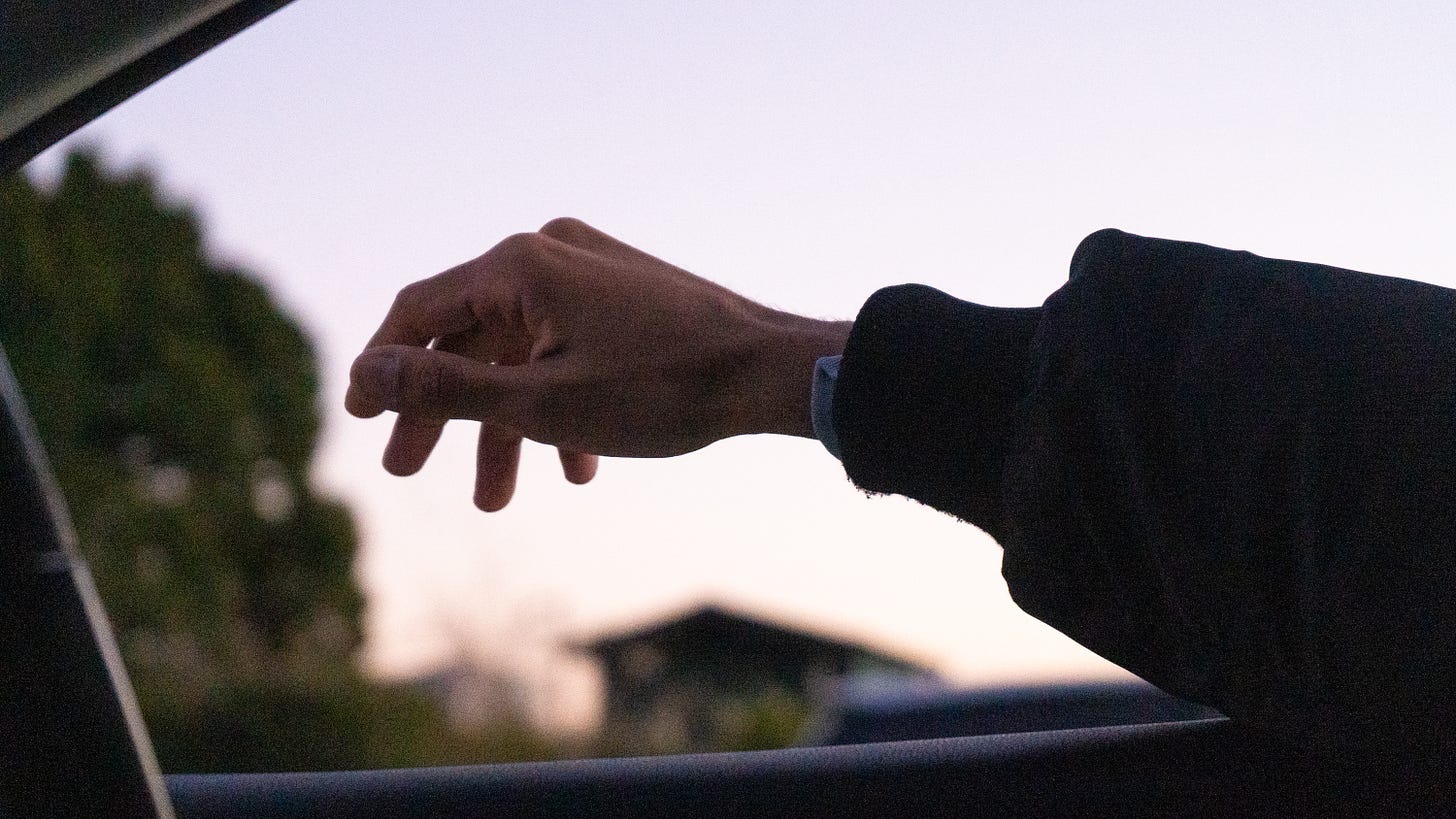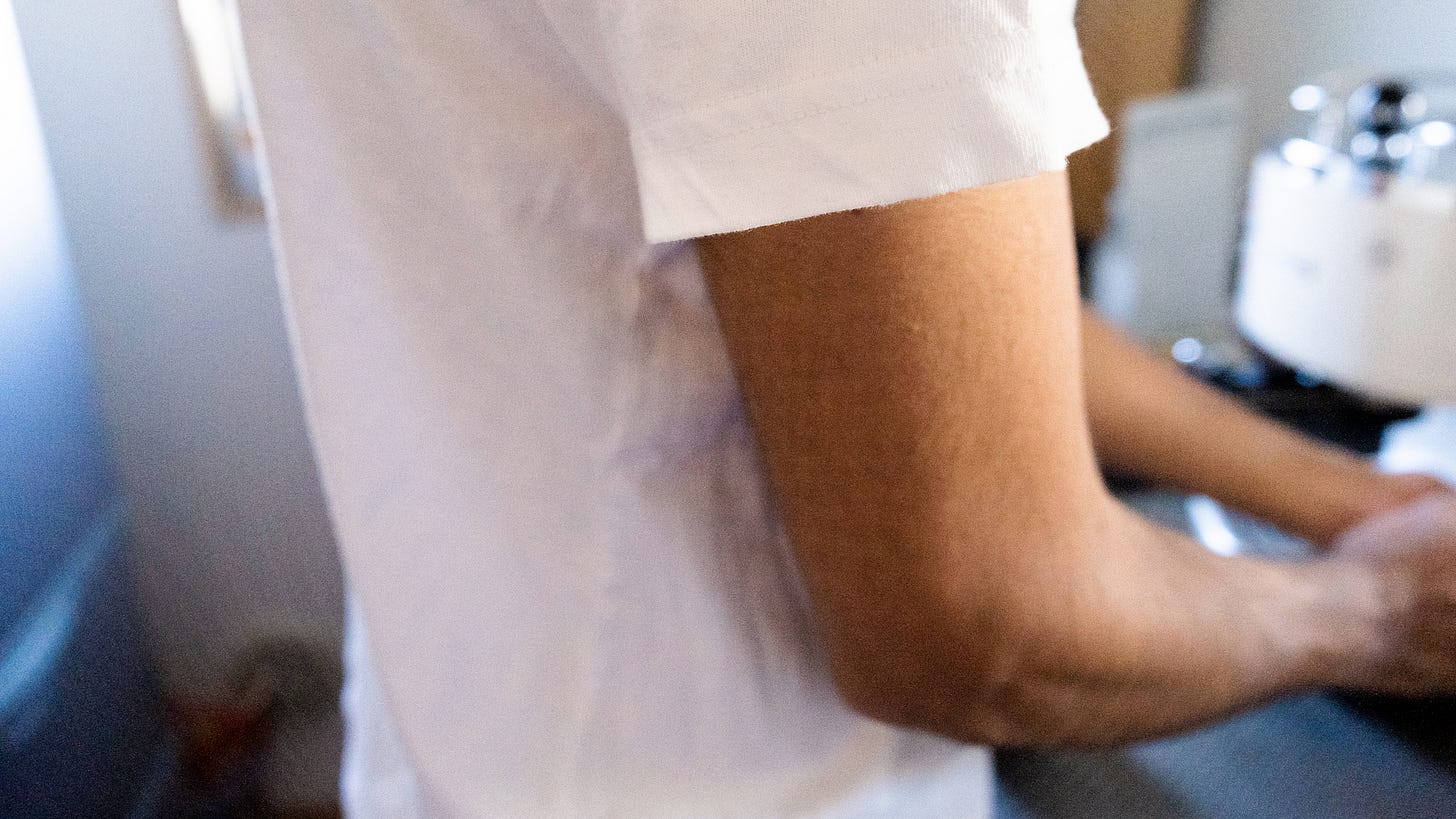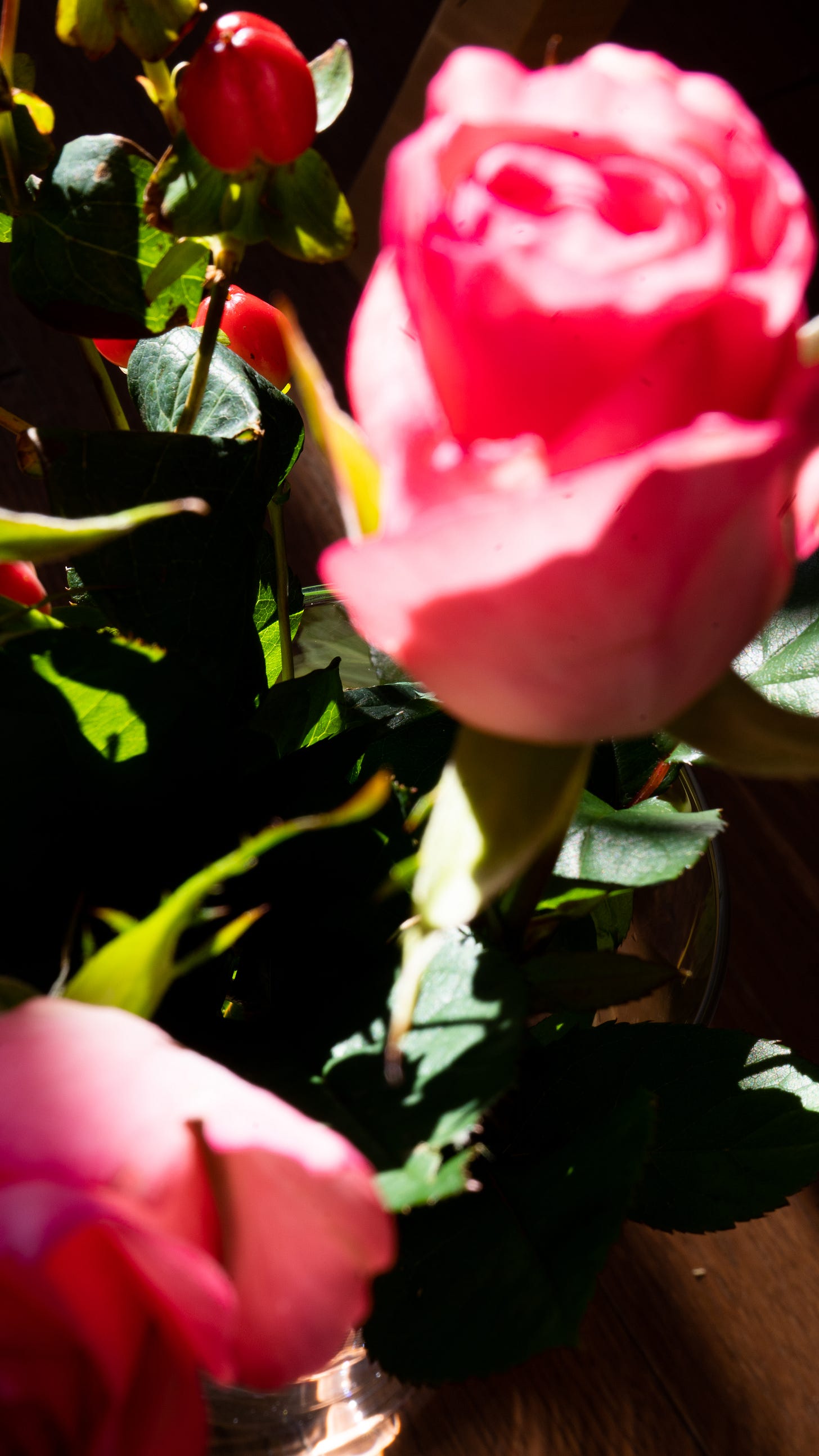She asked me if I was a student at the university nearby, and I said no. I ordered a latte, and almost ordered the fresh hummus in a glass jar but didn’t. Many inquiries about where I’m from, who I am, or what I do seem to end this way, with a no. And yet I haven’t gotten used to being misidentified. She placed the change on the counter with my receipt. This is something we have all become accustomed to now, no longer placing things in another’s palms. My own relationship, rendered mostly secret by nature of our cultural differences, carries a similar fate in public spaces. Sometimes we have to pretend there has never been any intimacy in our fingertips. It’s not a fate I’m entirely used to, I like it when palms are placed in other palms—when one is holding the other, and the other is holding on too.
What would it be like to become the things we are mistaken for—the things we are not? If I became a few of the things I was mistaken for I would be: the wrong age, the sister of friends I am not related to, from France, or Brazil, and a professional gardener.
What are you? A stranger asked last summer. We were standing by a crosswalk, waiting for the light to turn green. I remember the way he gestured flippantly with his hands, palms facing downwards as if my appearance had confounded them. The query demanded a prompt response. At the time, I did not receive the question well because it read more like an accusation; it was night and it was Shibuya and I was exhausted.
I answered him mechanically, searching through my imaginary rolodex of self with a single imaginary index finger. I assumed he was asking about my background, my roots, the mixed amounts of blood and DNA I have running through my organ systems. And he was. Having been given the time to think about it since, I’ve imagined other answers I could have given. The question plays softer in my memory now; my voice replacing his—quieter and less urgent; the role of questioner passing to the questioned.
I picked up my change from the cafe counter, and sat down on a chair by the window. My latte would arrive soon, a heart shape resting on its milky surface. Just outside the window was a road with little foot traffic despite being close to the station. There were train tracks just beyond the small road; a train with blue stripes on its side passing by diligently every fifteen minutes or so, probably in the pursuit of Shinjuku. It’s here I began writing this installment. I was due to return back to the apartment soon to wake my significant other, who has recently taken to sleeping long hours during the day; curtains closed to shut out the sun. When he wakes up, he makes lattes with flower designs. It’s a calm and quiet practice for him; a dance done with the hands. He begins by wiping down the countertops, removing the space of clutter. He pulls out two mugs, measures and weighs the grains, wipes the counter again. Slow. Thorough. There’s a different pattern on the latte each time, though he seems to favor tulips.
Last month, someone informed me that palm readers are guided by Satan. They explained further, and I will paraphrase their account: Satan does not know our whole life story, nor the truth in our hearts, but the devil knows enough. When getting your palm read, Satan will sit next to you, as if personal details can be stolen through proximity. He whispers half-truths to the palm reader, who can see and hear him plainly as they trace the patterns hidden in your hands.
I wanted to, but didn’t tell them that I once visited a palm reader almost nine years ago, just months before I moved to Japan. Maybe part of me was worried they would think I sat with Satan on purpose. The palmistry took place before my graduation in 2013, and almost entirely by chance. A friend and I had been sitting on a small hill in May, eating ice cream, and talking about the possibility of future when we saw a sign in a nearby window: Palm Reading, Ten Bucks. “I’ll go if you go,” one of us said to the other.
The palm reader told me I was about to travel the farthest I’d ever gone, across oceans, that I would stay in a place longer than I expected. I got chills then, knowing I hadn’t mentioned a detail of myself, least of all my confirmed plans overseas. She told my friend he would make movies, like really make them—he would become a child in the bosom of cinema. I was jealous. She said I’d become a gardener. She explained that she saw in me a deep desire to connect with the earth and bury my fingers in the soil. When the two of us left the dark and dusty room, standing up from the grey and dusty couch with effort and awkwardness, the day we returned to outside seemed all too bright. We met grass that was too green on the hill, and a fake blue sky that had certainly been edited and altered to be just so.
Now I can’t help but imagine that there was an invisible teller of half-truths sitting on the couch next to us that day, whispering what was true and not true to the woman with the ten dollar palm reading sign in her window. I have yet to grow gardens as she prophesied, though it is true that I am partial to walking by flower markets; my eyes resting on bouquets of mauve roses; a dozen or so wrapped in yesterday’s paper—for 600 yen1 a stem. The kind hanayasan2 nearest my apartment almost always waves when I pass by, she probably notices my wistful gazing. She asks me if I’m well, if I need flowers, am I vaccinated, and when was the last time you went home?
As I finish this installment, I am sitting in an altogether different cafe, near the same diligent train with the blue stripes—but one that goes in the exact opposite direction. I’m on the other end, and I’m holding a different latte in my hand that bears no clear design of how anything will unfold. My mom told me she is reading a book about a girl whose hands turn blue. The color denotes her power and her secrets; a generational blue that’s been passed down for years. But her family has kept all this hidden, so she doesn’t understand why her hands are beginning to change. I note that my palms are dry, and that my significant other is still asleep. Other observations include that today is a Wednesday, the sakura3 have all turned bright green, there are many, many tulips and roses blooming in this park, and I have been in a place far longer than I expected.
Equivalent to 4.61 USD on today’s date of May 3rd, 2022.
Hanayasan or 花屋さん is the Japanese word for “florist.”
Sakura or 桜 is the Japanese word for “cherry blossoms.” A quote from one of my students on March 31st, 2021: I take pictures of my cat, not of the cherry blossoms.
This newsletter just hatched in March 2022. If you find value in Swallow, please support its growth by sharing it with others. A little goes a long way.








I love how you weave everything together effortlessly. The threads appear, wind around and suddenly reappear at a later point. I feel as though I am reading your mind. You are a REMARKABLE writer. Thank you for sharing